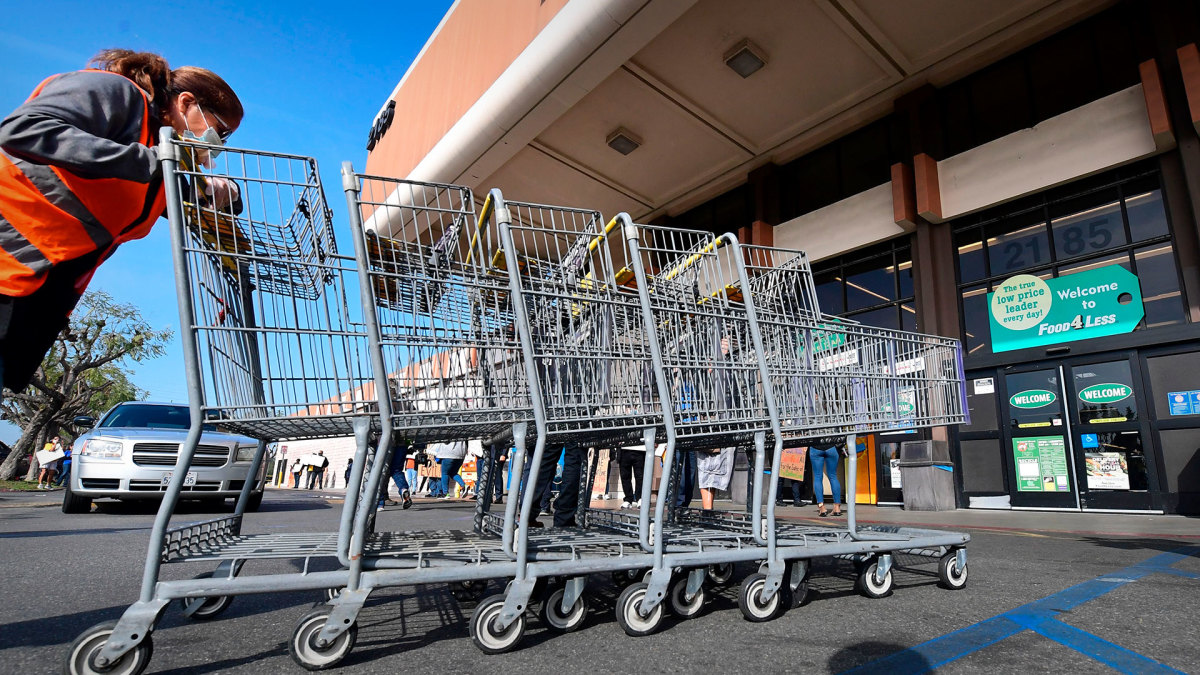
Not every theft is equal.
Someone stealing food to feed their family may be committing a crime, but they're doing so for a reason that many can relate. A person stealing simply because they want to own something they can't afford or who steals for financial gain, has ostensibly committed a worse crime.
Add in that, in many cases, especially with self-checkout, it's actually hard to know when someone has intentionally stolen an item or simply forgot to scan it. Most people have walked out of a store having never scanned that case of water or big pack of paper towels under their cart.
Related: Dollar Tree follows Walmart and Target in bold theft-prevention move
If that happens, some people go back to the store and pay for the item they missed, Others are worried that they will be accused of theft and simply leave as fast as they can.
Clearly, someone slipping an iPad into their pants or hiding tins of caviar in their purse has committed a bigger crime than a kid who steals a candy bar because his parent wouldn't buy it for them. In many cases, however, whether a theft is big or small, it generally goes unpunished.
That's because neither the store nor local law enforcement has the resources to prosecute people who commit relatively minor thefts. In a world where cars and jewelry get stolen, someone stealing steaks at Kroger KR or over-the-counter drugs at Walgreens often ends up slipping through the cracks.
Both Walgreens and Kroger, however, have been working with Alto, a company that mixes technology and human resources to make it easier for retailers to give law enforcement what they need to arrest and prosecute shoplifters.

Image source: Shutterstock
How Walgreens and Kroger's new partner works
Alto customers get access to an app that allows its frontline workers — clerks, check-out people, and those folks who monitor self-checkout — to report on-sight incidents as they happen. Once they do that, Alto assigns a support person to the store who immediately heads out to the location in order to collect evidence, which is then passed on to Alto's legal which "helps build cases for the DA to hold offenders accountable."
"Usually, the case breaks down after an incident is reported, because the retailers and law enforcement do not have the resources to dedicate toward building a case around a minor theft/incident," the company shared in an email to TheStreet. "However, these minor thefts add up, and offenders are getting more violent. Alto is also able to connect the dots between offenders who target different stores it works with (e.g. a Walgreens and a Target), which they could not do on their own."
It's a program that throws resources at the problem which, in theory, leads to more people facing criminal charges which serves as a deterrent for other criminals.
"Stores in the Alto alliance have reported up to 30% reduction in shrink and violent incidents over the past 12 months," the security company shared.
Alto helped a retail partner catch the 'Diaper Guy'
Alto CEO Cristian Lopez shared a recent success story with TheStreet. One of the company's retail partners had a repeat offender known by the nickname "diaper guy." Her had been stealing from the store on a weekly basis.
"Our Customer Support Specialist (CSS) and attorney organized a Law Enforcement Partnership Meeting (LEPM), during which we aligned the store's policies with (the local) police department's expectations, establishing a solid partnership to address the problem," Lopez shared.
This ultimately led to the suspect being arrested. And, in this case, it turned out to be a success on multiple fronts as the former "diaper guy," was given rehab as an option by the court. He, according to Lopez, got clean and returned to the store, not to steal more diapers, but to thank employees for helping him break his cycle of addiction.
That, of course, is a best-case version of potential outcomes. This program results in more arrests — that's the goal, not helping criminals turn their lives around. Working with Alto, however, does give stores a missing piece of the puzzle if they're looking to use potential arrest and punishment as a way to deter other criminals.







